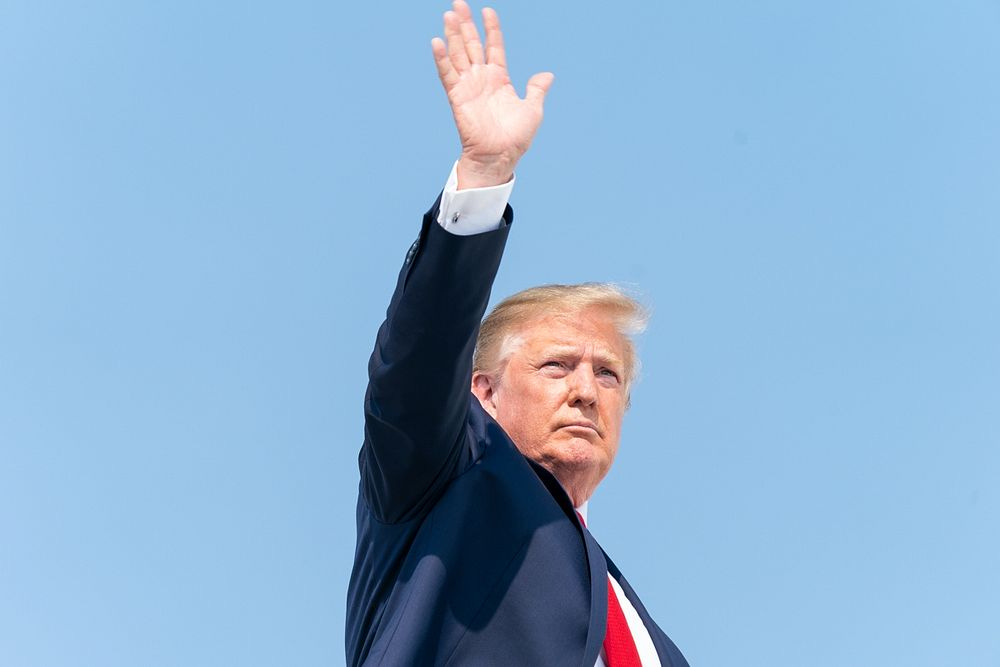The United States President Donald Trump introduced a complete 21-point Gaza peace plan, which he believes will lead to a successful agreement that frees all remaining hostages while ending the 15-month conflict between Israel and Hamas. The proposal, which United Nations leaders received in private sessions at the UN headquarters, requires Hamas to release all hostages within 48 hours of signing an agreement and outlines rules for Gaza’s future administration.
White House Optimism Meets Regional Skepticism
White House Optimism Meets Regional Skepticism. Before he departed for the Ryder Cup, Trump spoke to journalists about his positive outlook for the Gaza peace negotiations. The president stated that Gaza peace negotiations show promising signs of success. The agreement will secure the release of all hostages and establish peace between the warring parties.
Deal Structure Excludes Hamas from Governance
The military operations against Hamas will continue until the organization becomes extinct, according to Israeli Prime Minister Benjamin Netanyahu, who spoke on Friday. The United States Special Envoy Steve Witkoff explained the plan’s full extent at the Concordia Annual Summit, stating that it fulfills both Israeli requirements and those of its regional neighbors. The proposal was presented to officials from Saudi Arabia, the United Arab Emirates, Qatar, Egypt, Jordan, Turkey, Indonesia, and Pakistan on Tuesday. The proposed framework establishes Hamas' exclusion from future Gaza administration through a two-part transitional government system, which includes international oversight and Palestinian committee management.
The remaining 20 out of 48 Israeli hostages who survived in Gaza will receive their freedom before Israel starts pulling out its forces from the blockaded territory. The plan fails to establish a timeline for when international control will shift to the Palestinian Authority, which currently governs parts of the occupied West Bank. The Israeli government maintains its opposition to the Palestinian Authority's management of Gaza, which creates obstacles for plan implementation. Multiple regional leaders asked Trump to establish stronger measures against Netanyahu through private diplomatic channels.
Regional Leaders Press for Stronger Action
Multiple diplomatic sources confirmed that Saudi Arabia, Qatar, Egypt, the UAE, Turkey, and France asked Trump to take stronger action against Netanyahu. The participants at Tuesday’s meeting received assurance from Trump that he would block any West Bank annexation attempt by far-right members of Netanyahu's coalition.
The diplomatic effort emerged after Israel launched an airstrike against Hamas representatives in Doha on September 9, which led to the breakdown of previous peace talks. The Qatari government wants Israel to provide security assurances before it will resume its role as mediator.
The Hamas organization has not provided any official response to the situation. The Trump administration stated that both parties understand the ongoing discussions, but Hamas officials denied receiving any official proposal. The Reuters news agency received an anonymous statement from a Hamas official who denied any knowledge of receiving a plan from the organization.
Hamas Response Remains Unclear
The Hamas leadership has shown willingness to accept any peace deal that brings an end to aggression and Israeli military withdrawal from Gaza. The current peace efforts take place while Netanyahu prepares to speak at the UN General Assembly as multiple nations establish official Palestinian state recognition.
Diplomatic Stakes and Future Prospects
The Abraham Accords between Israel and Arab nations face potential collapse because Arab leaders stated that West Bank annexation by Israel would trigger this outcome. The upcoming period will determine if diplomatic efforts can resolve the core disagreements that have blocked peace negotiations throughout the conflict, as Trump demonstrates his commitment to achieving success where past administrations failed. The president’s optimism about attaining a “Successfully Completed Agreement” faces opposition from both Israeli and Palestinian leaders, who maintain their strong positions.



